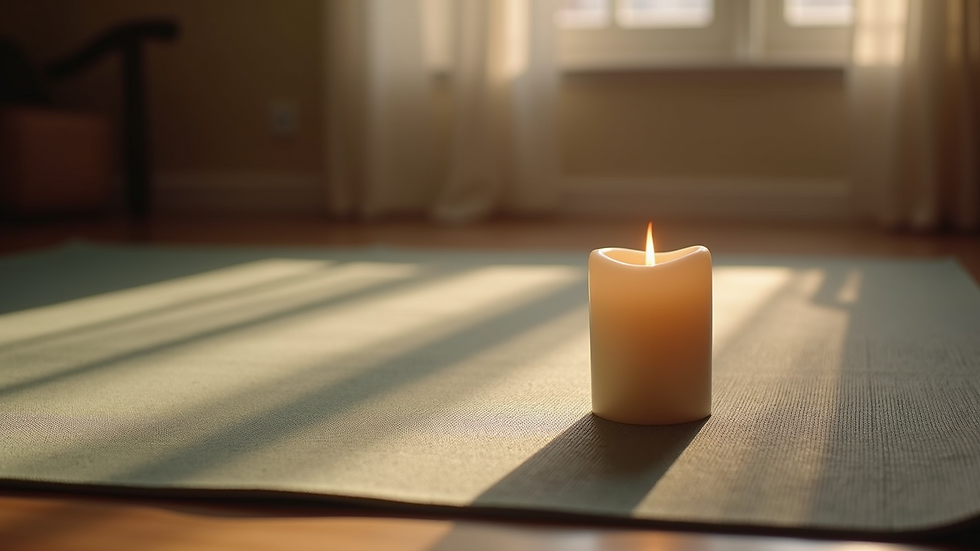Simple Tips for Full-Body Relaxation
- Sensual Sanctuary
- Aug 6, 2025
- 3 min read
Relaxing your entire body is essential for maintaining good health and mental clarity. In today’s fast-paced world, stress can build up quickly, leading to tension and discomfort. Fortunately, there are simple and effective ways to unwind and restore balance. This guide will walk you through practical tips to achieve full-body relaxation, helping you feel refreshed and rejuvenated.
Understanding the Importance of Body Relaxation
Body relaxation is more than just feeling calm. It helps reduce muscle tension, lowers blood pressure, and improves sleep quality. When your body is relaxed, your mind follows, creating a positive cycle of well-being. Taking time to relax can also boost your immune system and increase your energy levels.
To start, it’s important to recognize the signs of tension in your body. Common areas where stress accumulates include the neck, shoulders, and lower back. By focusing on these areas, you can release tightness and promote overall comfort.

Effective Body Relaxation Practices to Try Today
There are many ways to relax your body, but some methods are especially easy to incorporate into your daily routine. Here are some practical techniques:
Deep Breathing Exercises: Sit or lie down comfortably. Inhale slowly through your nose for a count of four, hold for four, then exhale through your mouth for four. Repeat this cycle several times. Deep breathing helps oxygenate your blood and calms your nervous system.
Progressive Muscle Relaxation: Starting from your toes, tense each muscle group for five seconds, then release. Move upward through your body, focusing on each area. This technique helps you become aware of tension and consciously let it go.
Gentle Stretching: Stretching your muscles can relieve stiffness and improve circulation. Focus on slow, controlled movements targeting your neck, shoulders, back, and legs.
Warm Baths: Soaking in warm water relaxes muscles and soothes aches. Adding Epsom salts can enhance the effect by reducing inflammation.
Mindfulness Meditation: Sit quietly and focus on your breath or a calming image. When your mind wanders, gently bring it back. This practice reduces stress hormones and promotes relaxation.
For those interested in professional help, exploring body relaxation techniques such as therapeutic massages can be highly beneficial. These services target muscle tension and encourage deep relaxation.

What is the Best Way to Relax Your Body?
The best way to relax your body depends on your personal preferences and lifestyle. However, combining several methods often yields the best results. For example, starting with deep breathing to calm your mind, followed by gentle stretching to release muscle tension, can be very effective.
Incorporating relaxation into your daily schedule is key. Even 10-15 minutes of focused relaxation can make a significant difference. Consistency helps train your body to respond better to stress.
Another important factor is creating a peaceful environment. Dim lighting, soft music, and comfortable clothing can enhance your relaxation experience. Avoid distractions like phones or loud noises during your relaxation time.
Experiment with different techniques to find what works best for you. Some people prefer yoga or tai chi, which combine movement with mindfulness. Others may find guided imagery or aromatherapy helpful.

Tips for Maintaining Full-Body Relaxation Throughout the Day
Relaxation doesn’t have to be limited to specific sessions. You can maintain a relaxed state by adopting simple habits:
Take Regular Breaks: Stand up, stretch, and move around every hour if you work at a desk.
Practice Good Posture: Sitting and standing correctly reduces muscle strain.
Stay Hydrated: Drinking water helps your muscles function properly.
Limit Caffeine and Sugar: These can increase tension and anxiety.
Use Relaxation Reminders: Set alarms or notes to remind yourself to breathe deeply or stretch.
By integrating these habits, you can reduce the buildup of tension and enjoy a more relaxed body throughout the day.
Enhancing Relaxation with Lifestyle Choices
Your lifestyle plays a crucial role in how relaxed your body feels. Here are some additional tips to support full-body relaxation:
Regular Exercise: Physical activity releases endorphins, natural mood boosters that reduce stress.
Balanced Diet: Eating nutritious foods supports overall health and energy.
Adequate Sleep: Aim for 7-9 hours per night to allow your body to repair and recharge.
Limit Screen Time: Excessive exposure to screens can cause eye strain and mental fatigue.
Connect with Nature: Spending time outdoors can lower stress and improve mood.
Incorporating these choices into your routine creates a foundation for lasting relaxation and well-being.
By applying these simple tips and techniques, you can enjoy the benefits of full-body relaxation every day. Whether through mindful breathing, gentle stretching, or professional massage, taking care of your body helps you feel balanced and energized. Start small, be consistent, and watch how your body and mind transform.





Comments